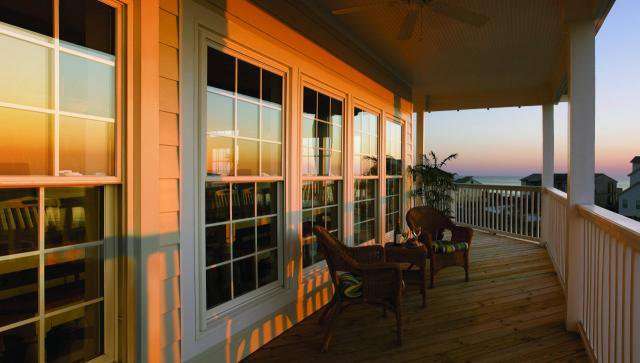Many home and business owners in Southwest Florida need to adhere to laws for the use of outdoor lighting, and may also be required to install green tinted turtle glass on windows of Gulf-front properties to diffuse light coming from the inside.
During sea turtle nesting season in Southwest Florida, female turtles deposit and bury eggs in the sand and then return to the warm waters of the Gulf. Within two months, the eggs hatch and the baby turtles flee into the water. Since they resemble a moving buffet for seagulls and other enemies, the migration takes place at night, where the babies move toward the water by the light of the moon, out of the eyes of predators.
These hatchlings sometimes mistake the light coming from homes, condos and commercial structures for moonbeams that direct them to the water. They lose their way and their disorientation can cost them their lives from exhaustion, dehydration, crushing, or from predators.
Protecting Wildlife With Marine Turtle Protection Ordinances
Sea turtles are vital to the ecosystem of Southwest Florida. To protect them, the Florida Department of Natural Resources adopted the Model Lighting Ordinance for Marine Turtle Protection in March 1993 which requires local municipalities to develop guidelines for controlling beachfront lighting and protecting the habitat of marine turtles.
The law applies to three dozen coastal counties, including Lee County and Collier County, and covers specifics such as the positioning of exterior fixtures, use of exterior light such as floodlights or spotlights, building campfires or bonfires, prohibiting vehicles on the beach at night, using flash photography, and light that emanates from residences and businesses.
Turtle Laws on Fort Myers Beach
On Fort Myers Beach, for example, regulations specify that "residents and property owners must shield all lights that can be seen from the beach from 9 PM to 7 AM during turtle hatching season. All exterior fixtures on the seaward and the shore perpendicular sides of the building (and on the landward side of the building if they are visible from the beach) should be well shielded, full cut-off, downward directed type fixtures. All exterior fixtures on the landward side of the building should be downward directed only. The town’s regulations offer many suggestions about positioning and shielding lights, what wattage to use, setting motion detectors, using amber LED lights, and protecting the beach by planting dense vegetation around your home to block lights.
Beachfront residents and businesses are required to close their blinds or drapes and limit exterior light after 9 PM between May 1 and October 31 of each year, which is turtle hatching season.
As an alternative, homeowners can install “turtle glass” to keep windows uncovered at night and preserve their view of the outside. Turtle glass is tinted green to reduce light projection and has a visible light transmittance of 45% or less. The Fort Myers Beach sea turtle lighting plan requires that this tinted glass or film shall be applied to all replacement or new windows and doors within the line of sight of the beach. This includes the seaward and shore-perpendicular sides of the structure.
The Special and Endangered Species Protection Ordinance of the City of Naples (click here to download) requires plates of tinted glass for windows that are visible from the beach. The tinted glass shall be any window or glazing that has an industry-approved light transmittance value of 45% or less. Such transmittance shall be limited to the visible spectrum (400 to 700 nanometers) and shall be measured as the percentage of light that is transmitted through the glass, inside to outside.
Turtle Glass Helps To Comply With Local Ordinances
The specific coating of turtle glass makes it easier for you to live freely within your home, while reducing the impact on the environment. Given that many beachfront properties are rented out for part of the year, turtle glass can also spare renters from inadvertently violating laws while keeping hatchlings safe.
It is important to note that property owners are not required to replace current windows, but must use turtle glass when replacing windows. All new Gulf-front construction must use turtle glass to comply with the laws.
Protect Yourself And Protect The Ecosystem With Turtle Glass Windows From Storm Solutions
Want to protect the environment by making your home compliant to sea turtle lighting law while protecting your property from storm damage? Storm Solutions has your solution. We install CGI, PGT WinGuard, WinDoor, and other top brands that meet the turtle code and protect your home or business from severe weather.
We serve Naples/Marco Island, Fort Myers/Cape Coral and Port Charlotte/Punta Gorda in Southwest Florida. Contact us today for a no obligation consultation about installing fully code-compliant turtle glass windows for your home or business. Just visit our website or call us at (239) 288-4430 to set up an appointment.

BuckeyeSmithie on October 31st, 2019 at 17:51 UTC »
The linked article doesn't say anything about windows reflecting moonlight. The turtle glass is never said to have any less reflectivity than normal windows. It is simply tinted in such a way that <45% of light in the visible spectrum is transmitted through the glass. It's all about keeping the light from inside the house from being visible on the beach.
edit: added quote from title.
MoronicalOx on October 31st, 2019 at 17:35 UTC »
There's a whole segment in the "Cities" episode of the newest Planet Earth (on Netflix, btw) about this problem. It's heart wrenching to watch, knowing what's going to happen to those little ones that get confused. I don't believe the beach they showed was in the US.
torradinhaquentinha on October 31st, 2019 at 16:58 UTC »
I've seen newborn turtles going the wrong way because of city light like that. The poor things get totally confused. We had to keep turning them around. In the end we had to resort to just putting them directly in the water